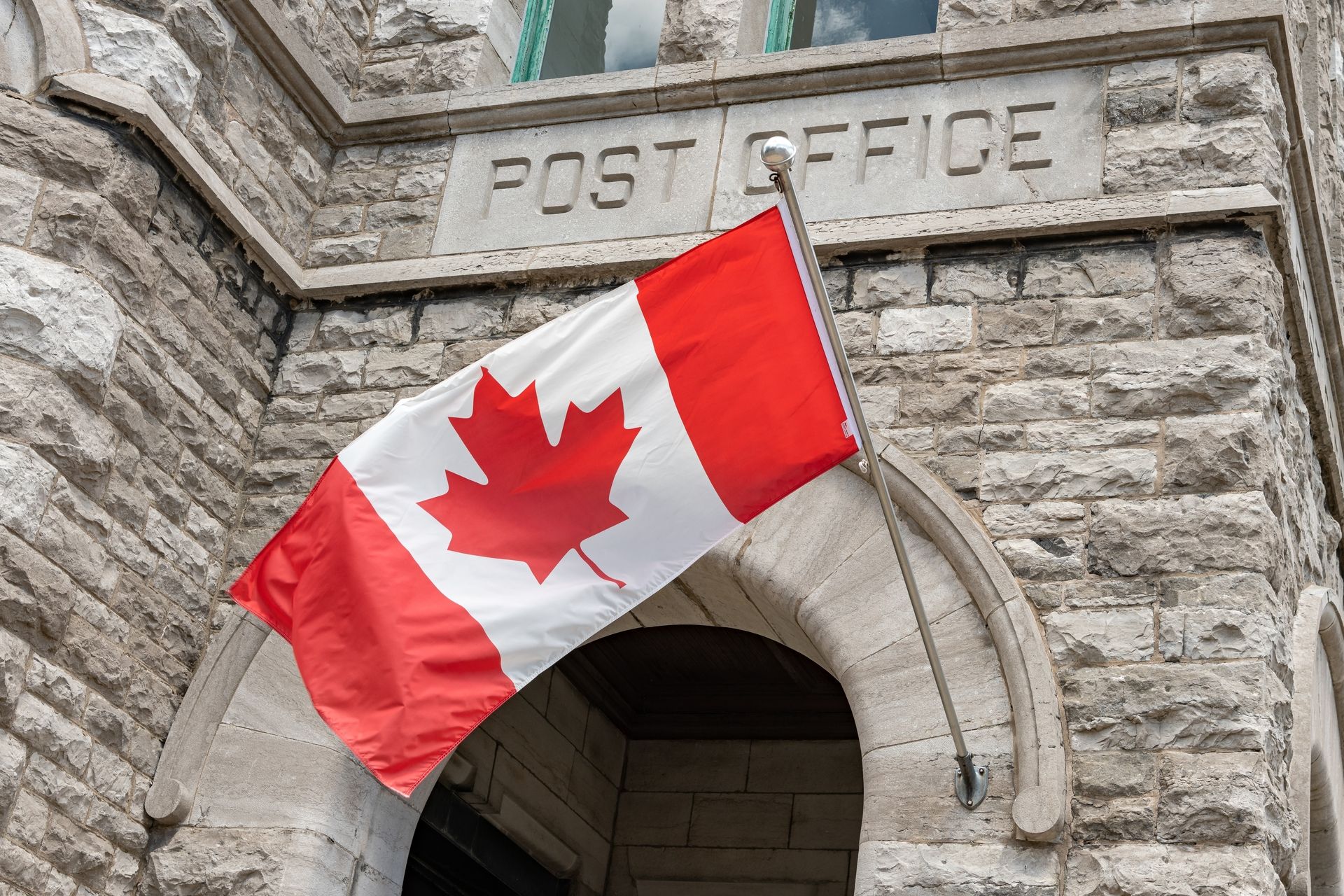
Good morning!
If a message could travel from Sydney to Boston in a whisper, you’d call it magic. Physicists just pulled off the atomic version: nuclei inside a silicon chip “phoning” each other across 20 nanometers — a thousandth the width of a human hair. That tiny distance could solve a scaling problem that’s stalled quantum computing for decades. The payoff? Machines powerful enough to design drugs molecule by molecule. 👾
Today’s issue takes 5 minutes to read. Only got one? Here’s what to know:
Mediterranean diet may ease psoriasis symptoms.
Severe sunburns linked to higher skin cancer risk.
Surgery best for severe pediatric sleep apnea.
Gene therapy significantly slows Huntington’s disease progression.
Canada losing pediatric access to cancer trials.
BC town hires doctors directly to restore care.
Let’s get into it.
Staying #Up2Date 🚨
1: Food as Medicine: Mediterranean Diet Helps Psoriasis
An RCT of adults with psoriasis found that 16 weeks on a Mediterranean diet — think extra-virgin olive oil, legumes, and fish — significantly improved symptom severity. Compared with controls, the diet group showed lower psoriasis area and severity and reduced HbA1c. The takeaway: dietary strategies could be a useful add-on in psoriasis care.
2: Sunburns Don’t Just Fade Away — They Raise Cancer Risk
A meta-analysis of 17 studies (300K+ participants) found that painful, blistering sunburns raise the risk of cutaneous squamous cell carcinoma (cSCC). People with a history of severe sunburns had higher odds (OR 1.38; 95% CI, 1.06–1.79), and those with many severe childhood burns were hit hardest (OR 3.11; 95% CI, 1.26–7.66). The bottom line is prevention matters, at every age.
3: Watch & Wait or Operate? Managing Obstructive Sleep Apnea in Kids
An RCT followed children ages 2–4 with mild to moderate obstructive sleep apnea, comparing watchful waiting (WW) with adenotonsillectomy (ATE). After 3 years, kids in the WW group who had bigger tonsils and heavier symptom burden still showed sleep apnea and eventually needed surgery. In contrast, those with mild symptoms and smaller tonsils did fine on WW. In other words, observation works for some, but ATE seems best for kids with more severe disease.
Genetic Game Changer 🧬
Is a one-and-done surgery the breakthrough for Huntington’s disease?
What happened: A new one-time gene therapy is showing promise in slowing Huntington’s disease. University College London’s (UCL) experimental treatment, AMT-130, reduced disease progression by 75% over 3 years in patients who received a high dose, compared with those on standard care.
About 6,000 Canadians live with the rare disease, and another 7,500 face a lifetime risk of developing it. Huntington’s disease causes the nerves in the brain to deteriorate over time, affecting a person’s movements, thinking ability, and mental health. Symptoms mostly appear between the ages of 35 and 55, and until now, there has been no cure.
But this new therapy works by using a harmless virus to deliver genetic instructions to the brain, turning off the protein that damages nerve cells. Researchers hope it could replace ongoing symptom-management treatments with a one-time therapy.

In a small study of 29 patients, 12 received a high dose of AMT-130 over 3 years. Brain scans and spinal fluid tests showed improvements in markers of brain cell damage. One neuroscientist noted that if given before symptoms appear, the therapy could delay or even prevent Huntington’s from developing.
But: Further studies are needed before the treatment is introduced to the public. The treatment also involves a 12-hour surgery where surgeons are guided by real-time MRI scanning. A microcatheter is used to inject two parts of the brain with the virus. Participants tolerated it well, but additional testing is needed to confirm safety and effectiveness before regulators like the FDA or Health Canada approve it.
Bottom line: Like any research paper, submitting the first draft is never a good idea. The neuroscientists at UCL have their work cut out for them, but the outcome could give patients and their families hope for a future they never thought possible.
Your clinic, your rules 🏥
Ready to take your practice remote and actually enjoy your schedule?
Imagine running your practice from your home office, a coffee shop, or the Rockies— yes, really. Think Research is hiring Primary Care Physicians to join us remotely on the VirtualCare™ platform. You’ll get full administrative and clinical support, flexible hours, and all the digital tools you need to manage patients, prescriptions, labs, referrals, and more.
Join a team that’s rethinking how healthcare is delivered across Canada, helping improve patient access while keeping your work-life balance intact. Make your schedule work for you, and focus on what matters: patient care.
👉 MDs with Canadian license & CCFP certification, apply here: Think Research Job Opportunity
Hot Off The Press

1: 💉 Some Canadian children with cancer are losing access to clinical trials. Toronto’s SickKids and CHU Sainte-Justine in Montreal have paused enrolment in several studies for hard-to-treat brain cancers after changes to US funding. For many kids whose cancers don’t respond to standard therapies, these trials are often the only lifeline. Doctors are now sounding the alarm: Canada depends on foreign research to treat its sickest patients but lacks the infrastructure to maintain access when funding changes.
2: 🏥 Colwood, BC, had a problem familiar to most small towns: no family doctors, and no real plan to get them back. So the mayor tried something unusual — he hired them as municipal employees. Salary, benefits, and less paperwork instead of private billing; steady access for residents who’d gone years without care. Other cities are watching to see if it’s a long-term fix or just a clever patch. For now, it’s proof that primary care isn’t broken — it’s badly managed.
3: 💉 A new long-acting PrEP option is heading for the global market: lenacapavir, a twice-yearly injectable that’s shown >99.9% protection against HIV transmission. In America, it costs US$28K per year, but global health agencies have secured licensing deals with Indian manufacturers to supply generics to 100+ low- and middle-income countries for about $40/year starting in 2027. Until then, access depends on stopgap deals — science is ready, bureaucracy isn’t.
4: 🛒 Costco is cutting back on Christmas sparkle — fewer trees, toys, and decorations — to make more room for essentials. Shoppers are tightening budgets, with inflation and uncertainty pushing them to skip the extra trimmings. Analysts say people are stretching their trees and decor for “a few more years,” leaving Costco to bet big on food, clothing, and high-ticket items instead.

Notable Numbers 🔢

$10M: what Canada Post is losing per day, according to PM Mark Carney. He argues the crown corp isn’t viable in an era of e-billing and dwindling mail — and wants more community mailboxes instead of costly door-to-door delivery.
$400M: the financial aid Canada is extending to Algoma Steel to offset the hit from US tariffs. Ontario is chipping in another $100 million, backing a company that employs 2,500 workers in Sault Ste. Marie as part of Ottawa’s tariff relief facility.
$323: the going rate for a nosebleed seat at Game 1 of the Jays’ ALDS at Rogers Centre. Apparently playoff spirit comes with altitude sickness.
152%: how much Seagate’s stock has jumped this year, making a 1970s-era hard-drive maker the second-best performer in the S&P 500. Western Digital (up 137%) and Sandisk (up 169%) are riding the same AI-driven storage boom.
90%: the odour MycoToilet’s mushroom-based liners can neutralize. It’s a BC-built, waterless toilet designed to make porta-potties… tolerable.
Postcall Picks ✅
🏃♂️ Move: the latest fitness trend claims backwards running can boost balance, strengthen muscles, and torch calories — just watch out for lampposts.
🍲 Make: this hearty vegetarian chili packed with fire-roasted tomatoes, beans, and smoky spices. It's the perfect cozy meal for a busy weeknight or a chilly weekend. Plus, it freezes well, so you can stock up for later.
👂 Listen: to the podcast on Comparing Pension Plans for Incorporated Doctors, which breaks down IPPs vs. HOOPP, contributions, and retirement projections — a chat your future self may thank you for.
🤑 Save: on just about everything with Amazon’s Prime Day Deals starting Oct. 7th.
📚 Read: this article on how you can reduce taxes on your estate so your loved ones can inherit more.
🤣 Laugh: at this TikTok video showing how different doctor specialties run to catch an elevator. From stethoscopes to chairs, everyone’s got a trick.
@healthincolor Credit: @torontosportsdoc Not the nurse making the doctors look silly! 🏃♀️ 😂 Styled by @wearfigs limited edition colors: 🌼 Internal med... See more
Relax
First clue: _____ spacing, fluid shifts from blood vessels into the interstitium
Need a rematch? We’ve got you covered. Check out our Crossword Archive to find every puzzle we’ve ever made, all in one place.
Think you crushed it? Challenge your physician friends to beat your time.
Meme of the Week

Share Postcall, Get Rewards
Help Us Get Better
What'd you think of today's edition?
That’s all for this issue.
Cheers,
The Postcall team.


